Meet Our Scholars
-
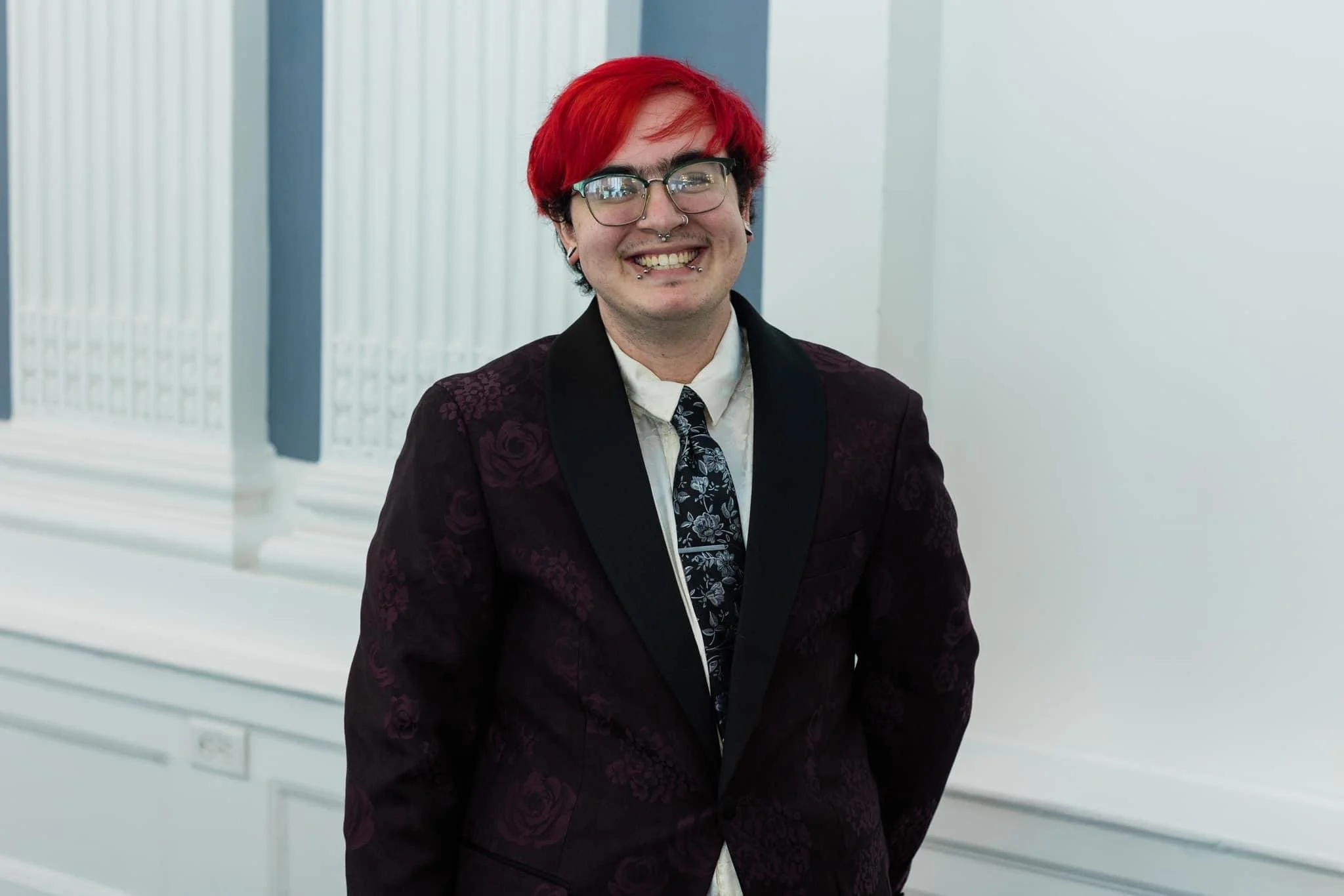
Dray Bourgeois
-
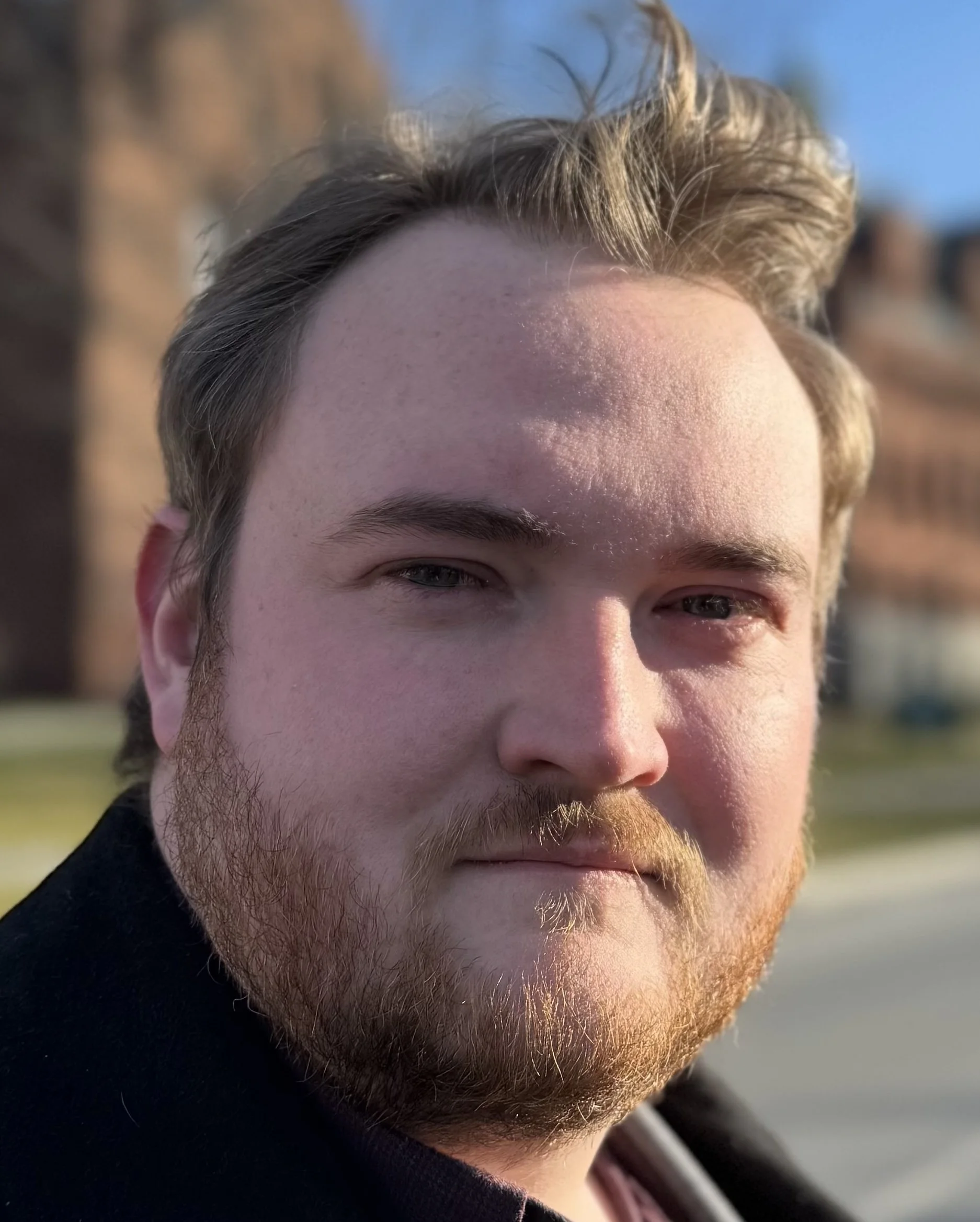
Evan Haley
-
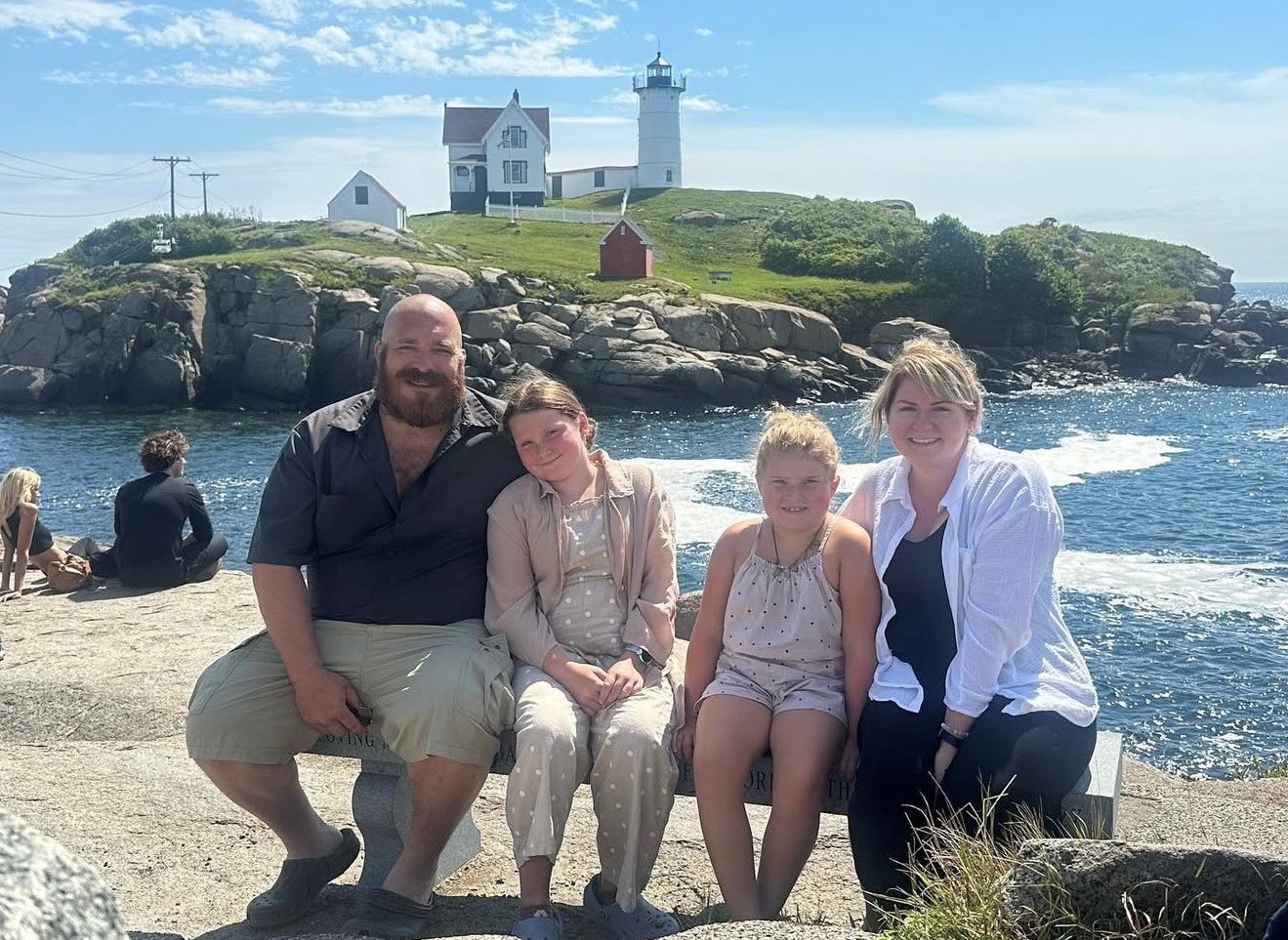
Kyleigh Tomczak
-
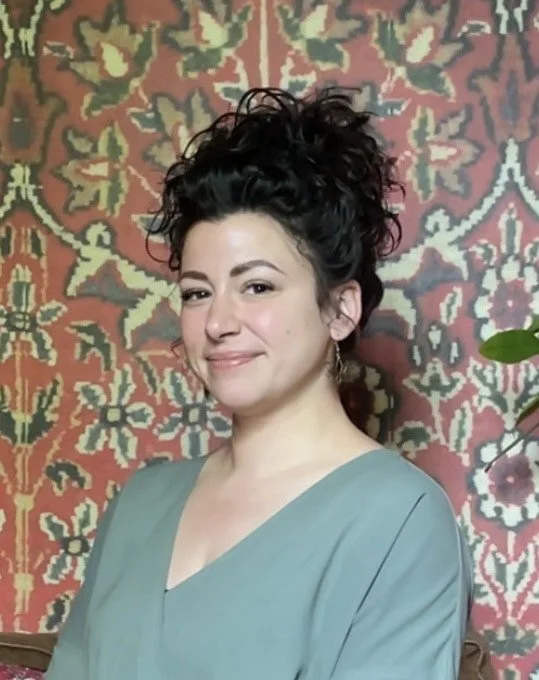
Brittany Hamblin
-

Kirsty Greeno
-
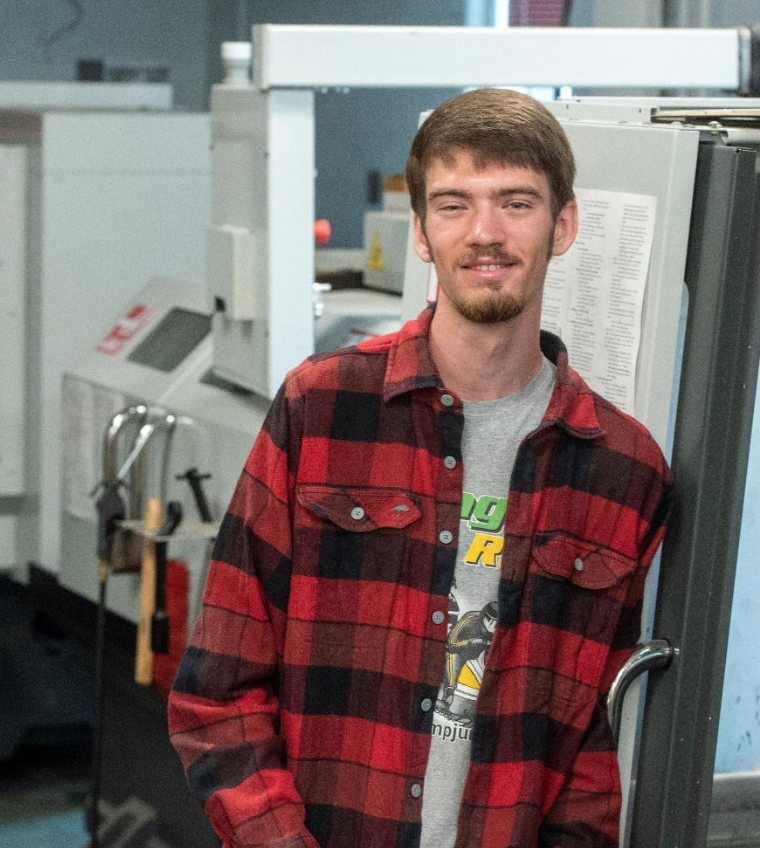
Ian Baker
-

Shadda Cliché
-

Skylar Casey
-

Mohamud Diini
-

Joanna Saturn
-

Logan Bailey
-

Vicky Mills
-
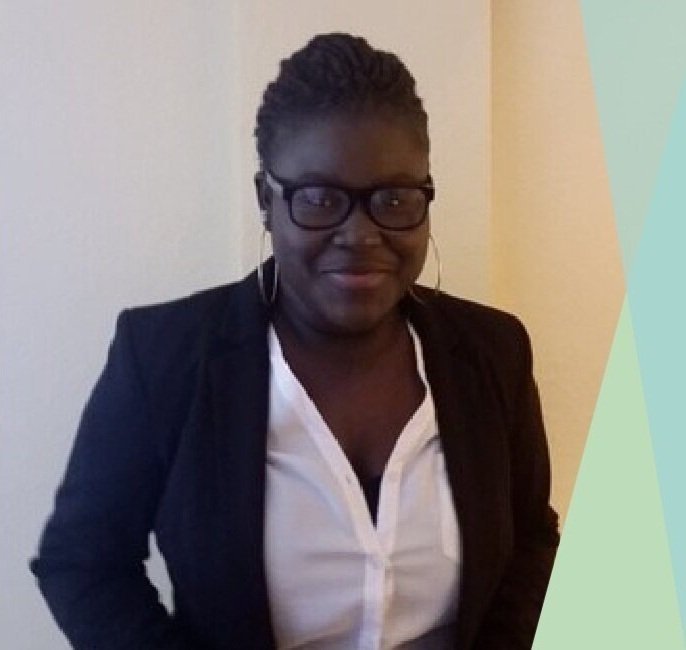
Naa Aku Addo
-

Colleen Couture
-

Ben Moser
-

Samantha Mills
-

Gail Trede
The impact of The Curtis Fund is reflected in its grantees.
Click to watch the video below!
Dray Bourgeois, Hampshire College
Dray Bourgeois is a multiply disabled, first-generation college graduate who clawed his way past everything stacked against him—poverty, disability, doubt, and institutions that were never built for someone like him to succeed. He didn’t just graduate. He broke a cycle.
Across the country, college is costing more every year, while financial aid gets harder to secure, and federal support increasingly politicized. These shifts hit first-generation, low-income students the hardest.
Before college, Dray’s family of five lived in Bennington and was barely getting by. Then his mother became blind and had to stop working. “We were low-income before,” he says, “but after my mom had to retire, we were really struggling. Two kids going to college at the same time? It just wouldn’t have happened without any financial support.”
Dray and his brother are both recipients of a Curtis Fund scholarship. And in a household with no college tradition and limited income, that support helped them reach college and reshaped what their family believed was possible.
“There were so many sacrifices we made just to get by,” he says. He
pushed for every bit of merit aid, juggled work and school, and refused to give up on himself, even when the odds were set against him.
“So many of my peers had never known true financial struggle. I felt like I didn’t belong. Like they thought less of me.” It reminded him just how deeply people underestimate students from backgrounds like his—and how much he had to overcome to prove they were wrong.
Yet he made it through. Dray earned his degree from Hampshire College and graduated without taking on debt thanks to his scholarship. Now, he’s building a life that once felt out of reach—he’s not living paycheck to paycheck anymore. He’s not putting his physical health at risk just to make rent. “I actually have savings now. I’m planning a wedding and putting money aside for a house, which never even felt possible before. That kind of future used to feel so out of reach.”
And now he’s using that momentum to help others do the same. At VSAC (Vermont Student Assistance Corporation), where he landed his first full-time job right out of college, he guides students through college applications and shows them what’s possible. He’s teaching them that people like them deserve to be in the rooms where futures are decided, because they’ve lived what’s at stake.
Dray was nominated for The Curtis Fund scholarship by his own VSAC counselor, who saw his potential before anyone else did. “She told me I was going to college. She wasn’t going to let me not go,” he remembers. When she called to tell him he’d received the award from The Curtis Fund, it was the first time it felt real. “It was a relief, but also this wave of possibility. Like maybe I could actually do this.”
Now Dray’s planning to pursue a master’s degree, potentially in special education, a field that overlaps with his current outreach work. And the ripple effect is clear: his parents, who never had the chance to attend college themselves, have been empowered by what Dray and his brother learned. “It’s even helped them make better financial decisions,” he says.
The Curtis Fund connects Vermonters with the access, support, and belief they need to pursue education, change what’s possible, and build a stronger future—for themselves, their families, and our state.
Community-based solutions are more vital now than ever. With federal aid being gutted, student debt climbing, and political attacks on public education accelerating, Dray is clear: “This is bigger than me. Some people will always have a way in. But for students like me, this kind of support is the only way forward.”
“It’s community-driven support like this that actually makes a difference,” he says. “Not with noise or performative policy, but by meeting people where they are and helping them move forward — for real.”
Evan Haley, University of Vermont
In Vermont and across the country, higher education is slipping further out of reach for working-class students. Soaring tuition, shrinking aid, and political attacks on public education are pushing college out of reach for many. The Curtis Fund stands in sharp contrast. It doesn’t just make college accessible—it makes it real. For Evan Haley, who grew up in Pownal, it was the catalyst behind a career built on giving back.
A first-generation college student from a working-class Vermont family, Evan knew higher education wasn’t something he could pursue on hope alone. It had to be mapped out, paid for, and within reach. "Unless higher education was a sure thing and a positive return, I could’ve ended up doing something completely different," he said. "The Curtis Fund made it possible."
The opportunity became a launchpad. Evan completed his undergraduate degree at the University of Vermont, graduating without taking on debt thanks to his scholarship, and then earned a master’s in education. Today, he’s back in Vermont: Assistant Director for Student Conduct at the University of Vermont, educational and social lead for the university staff union, and a doctoral student in Educational Leadership and Policy Studies.
His decision to stay in-state and serve his community was intentional. “I ended up in higher ed because I wanted to help students who were like me,” Evan says. “That’s why I do what I do.”
But Evan’s story isn’t just about personal achievement. He sees education and access to it as a political act. "There’s a real movement to eliminate or reduce access to higher education. Programs like The Curtis Fund are how we fight back. They keep students enrolled with their renewable scholarships. They keep institutions alive. And they keep the future of change within reach."
That’s what drives him. “I want to be on every front that matters,” he says. “Now’s not the time to sit back and hope things work out. It’s the time to try everything.”
From union halls to university offices, Evan is shaping systems from both the inside and the outside. And it all started with The Curtis Fund giving him the keys to unlock the gate and the footing to walk through it.
"When you support The Curtis Fund, you’re not just backing one student’s degree. You’re fueling a future of impact, leadership, and service to Vermont communities".
Kyleigh Tomczak, Vermont State University–Castleton
Kyleigh Tomczak is a nurse in the emergency room at Porter Medical Center in Middlebury, Vermont. It’s the job she worked hard to get. And one that changed everything. She’s helping others, earning enough to support her family, and—for the first time—she feels like she’s exactly where she’s meant to be.
But not long ago, her life looked very different. She was working as a hairdresser. Her husband worked security. They were raising two kids while living paycheck to paycheck, constantly on edge financially. "I don’t think I would’ve tried nursing school at all if we hadn’t gotten help," she says.
Too many young families in Vermont know this story. They work hard. They show up. But no matter how much they do, it’s not enough to get ahead — just enough to hang on. There’s ambition, drive, even a clear sense of what could be next. But without access, none of it moves. They end up sacrificing their future just to survive the present.
For Kyleigh, the obstacles were everywhere. She’d tried school before, but the timing never worked. She couldn’t afford to go all in. Not until her husband received a Credentials of Value (COV) scholarship through The Curtis Fund and started earning more. That one shift gave her the chance to try again—and finally see a path forward.
With that support in place, Kyleigh’s husband trained for his CDL and landed a better-paying job. That gave Kyleigh the breathing room to apply for her own degree scholarship through The Curtis Fund and start nursing school at Vermont State University–Castleton.
She didn’t tiptoe in. Her first year, she focused full-time on school while raising her kids. Her second year, she worked part-time as an LPN, gaining experience while finishing her degree. Now, she’s in the ER, doing what she loves and giving back to her rural community.
And she’s not the only one. The Curtis Fund helps Vermonters access education and training that leads to real, livable-wage jobs. Because meaningful work shouldn’t require a miracle. Just a pathway and the right support.
Too many Vermonters are working hard and still falling behind. But with access to training and education, they can move forward. They can earn more, do work that matters, and stay in their communities while building better lives.
When families gain access to opportunity, their impact reaches far beyond their own households. Just like Kyleigh and her family, that support can open doors to real change. The Curtis Fund connects people across the state with the training and support they need to build better lives — and a stronger Vermont.
Brittany Hamblin, Stafford Technical Center
Brittany Hamblin was doing everything right and still falling behind. For twelve years, she worked a demanding retail job that left no room to breathe. Her health, her energy, and her sense of self were all on the back burner. Her job gave her a title and a paycheck, though it meant long shifts, missed moments, and a growing sense that something had to change.
That’s when Brittany found Stafford Technical Center’s adult education program. The idea of going back to school had always felt out of reach. “I never had loans, but I was afraid of having them,” she said. “It felt like taking out another mortgage, like another weight we couldn’t carry.”
Then, a VSAC counselor awarded Brittany with a Credentials of Value (CoV) scholarship and cleared the financial barrier that had always stopped her. It gave her a path forward that didn’t require her to sacrifice her family’s stability to build something better. It also allowed her to complete her training without going into debt—something she hadn’t believed was possible.
Brittany enrolled in Stafford’s aesthetics program and started over. Today, she works at Five Elements Salon and Day Spa in Rutland as a licensed esthetician, massage therapist, and assistant manager. She treats clients, manages the front desk, and still gets home in time to tuck her kids in.
“I felt trapped before. I wouldn’t have been brave enough to make the leap without The Curtis Fund scholarship,” Brittany says. “Now, I’m learning and evolving in a way that lets me care for others and still show up for my family.”
She’s continuing her education, expanding her certifications, and helping the spa grow to meet community needs. “A lot of our clients carry so much. I get to help them feel better—in their skin, in their bodies, in their day. Self-care isn’t always about indulgence. For many of our clients, it’s one of the few moments they get to feel at ease. And I get to be part of that.”
Kirsty Greeno, Johnson State College
Kirsty Greeno moved frequently throughout her childhood, attending multiple schools across Vermont and Maine. The constant change made it hard to build lasting connections, and at one point a high school counselor even told her she wasn’t “worth the time” to prepare for college.
That changed when Kirsty met Monda Kelley, a VSAC outreach counselor, during her junior year at Otter Valley Union High School. Monda helped her chart a path toward college, encouraging her to catch up on credits and apply for scholarships—including one from The Curtis Fund.
Kirsty graduated in 2013 and attended Johnson State College (now Vermont State University-Johnson), where she found a true sense of community. She majored in psychology and earned a nonprofit business management certificate, gaining confidence and purpose through mentoring, service trips, and work with the DREAM Program.
After college, Kirsty served four years with AmeriCorps and later joined All Hands and Hearts, a global disaster relief organization. Now a Site Supervisor, she’s helped communities recover from wildfires, hurricanes, and tornadoes across the U.S.—including in her beloved Johnson, Vermont, following last summer’s floods.
“It felt hard to see Johnson hit so badly, but it was powerful to be able to give back to a place that gave so much to me,” she said.
Kirsty, a first-generation college graduate, credits education with helping her find her purpose.
“My biggest takeaway from college wasn’t my psychology degree—it was discovering my passion for helping others.”
Her next goal? Teaching youth the trades and continuing to empower others through hands-on service.
Ian Baker, Vermont Technical College
Ian Baker graduated from Vermont Technical College with a Bachelor of Science in Manufacturing Engineering Technology in May 2022. He graduated Summa Cum Laude with an associate degree in 2020 and was named VTC Student Engineering Technician that same year. Ian knows how to meet a challenge. He has cerebral palsy and says “…overcoming challenges is in itself a reward and motivator for me.” He credits The Curtis Fund will helping him graduate debt-free and plans to start his own company to prototype assistive devices that are affordable to your average person.
Shadda Cliché, Assumption University
Curtis Fund scholar, Shadda Cliche, is on her way to becoming a Certified Nurse Midwife. This is a goal she set her sights on as a high school student.
Shadda’s journey began when she attended MedQuest, a medical camp, at which she had the opportunity to shadow at different hospitals and medical centers. Shadda also learned that she could become a certified doula while still in high school. So after long school days at Brattleboro Union High School she took night classes to become a certified doula and attend doula-assisted births while still in high school!
Fast forward to today – Shadda is a junior at Assumption University majoring in biology with a minor in human services. In addition to her studies, she works at Connected Home Care where she assists the elderly. "The Curtis Fund helped me achieve many goals by funding my higher education. These funds have helped me tremendously on my journey to become a Certified Nurse Midwife.”
Shadda's advice to someone considering higher education is “to go for it.” She added, “Even if you don’t know exactly what you want to do, the right college or university will help you find your path. It’ll bring you the best opportunities that you never could have imagined achieving.
Skylar Casey, Southwest Tech
Skylar is currently in her first year of cosmetology school at Southwest Tech in Bennington. She has another year of her program. Skylar isn’t sure what she wants to do once she earns her license. She says she is leaning towards working at a local salon and then maybe creating her own. Skylar if very familiar with the cosmetology industry because her mom worked as a receptionist at a salon for many years. Skylar says, “I would go there to get my hair and nails done and would even go to hang out there because I was so close to everyone who worked at the salon.” She says everyone at the salon would ask her if she wanted to become a cosmetologist.
Skylar’s advice to anyone who doesn’t want to attend a four-year college is to pursue certification in something that interest you. Lastly, she shares that “My family and I were trying to figure out how we were going to pay for the program, so I applied for VSAC grants, and also was awarded The Curtis Fund CoV scholarship. These combined grants and scholarship were enough to cover the cost of my program. The Curtis Fund did a great job of supporting me and I really appreciate it!”
Mohamud Diini, Champlain College
Mohamud Diini is studying accounting at Champlain College. He says he chose Champlain College because of the endless opportunities [he is] offered there. Mohamud says, “In my first year at school, I’ve already had two internships, one at McSoley McCoy & Co. and one at AON.”
Mohamud has two pieces of advice to those considering college. First, he recommends looking into community college because it is “…a great resource for students who are stressed out about paying for college.” Second, he says that “The best advice I can give is to know what you want to study ahead of time. I spent extra money and time because I decided to switch majors.”
Lastly, Mohamud says that his Curtis Fund scholarship has saved him a lot of money and it has been a “big stress relief to me.” After graduating, Mohamud hopes to own his own business in the future.
Joanna Saturn, Burlington Code Academy
I chose Burlington Code Academy's Bootcamp program to get a well-rounded educational foundation in web development at an affordable price. I also chose the bootcamp because I wanted to career-pivot into something more financially sustainable, and that was lacking in my former jobs.
Investing in yourself can be scary and daunting but it is so worth it. I come from a very varied work background and wanted to finally get off the roller coaster of low-paying jobs. I felt really scary to do something new and foreign to me but if I can do it, you can do it! We all deserve to have a life where we are happy with our jobs/career and sometimes that means going back to school or enrolling in a certificate (CoV) program. Invest in yourself. You deserve it. Life is too short to be doing something that you don't love.
Today Joanna is working as an Associate Data Archival Consultant at Galen Healthcare.
Logan Bailey, Advance Welding Institute
After graduating from Spaulding High School in 2021 Logan enrolled at the Advance Welding Institute in South Burlington. In doing so, Logan joined a growing number of high school graduates who are choosing a Credential of Value (CoV) program to reach their postsecondary education goals. CoV programs prepare students for many of Vermont’s high-demand, high-wage jobs including IT Service Desk Specialist, Licensed Practical Nursing, Computer Coding and Software Development, Graphic Design, and Certified Production Technician – to name a few. Logan is interested in becoming an underwater welder and one day hopes to own his own welding business.
Vicky Mills, Northern Vermont University
Vicky earned her associate degree from CCV in 2021 and is pursuing a bachelor’s degree at NVU as a hybrid student, which means she takes classes online and in person at any of the four Vermont State Colleges. This program gives Vicky the flexibility she needs to care for her family while pursuing her degree. Vicky returned to school after decades in the workforce. She notes, “As a child I was very alone in my education, with no help or support on my homework. Neither my mom nor brother graduated high school and my dad died when I was young.” This lack of early support is now being made up for by her advisors at CCV and NVU who Vicky credits with “…inspiring [her] to keep going.”
Naa Aku Addo, MPA, University of Vermont
“I am originally from Ghana. I was blessed that I was born into a family that had the social capital to allow me to think outside of the box. I was able to envision a future where I would be exposed to different schools of thought, cultures, people, and experiences.
At Emmanuel College I was a dual major in Global Studies and International Affairs and Sociology with a Concentration in Social Justice. At the University of Vermont, my graduate degree was in Public Administration. Currently I am working with the Vermont Department of Health as a grant manager with the Tobacco control and prevention program.
My grandparents, who were both professors in the school system in Ghana, always made sure that I knew about the different options that were available for me. My grandmother and my grandfather of blessed memory never stopped feeding my mind with all the knowledge they had acquired. They made family trips and summer vacations ones to remember. My grandparents allowed me to experience new things, always made sure to continue teaching me to not be afraid to reach farther than I could imagine.
My parents also supported my goals and dreams no matter how difficult the road seemed. I am the first of my parent’s children to receive a bachelor’s and master’s degree. And, I always am thankful for the supportive family that allowed me to dream big.
My parents were very glad to hear that I received the grant award from the Curtis Fund. They both received their education in Ghana and always said the idea of receiving an award in Ghana was a big deal. The semester I was notified of the Curtis Fund grant, they were both proud and happy to know that I would have a relatively reduced amount of loans in the upcoming years.”
Colleen Couture, Fitchburg State University
Colleen is studying early childhood education at Fitchburg State University. She will graduate in 2023 and plans to continue at Fitchburg to earn her master’s degree in special education. Colleen chose to become an early childhood educator because she loves young children. “I have found that most students in preschool and kindergarten have this glow about them, and an eagerness to learn. I went into early education to help foster this glow and develop meaningful relationships in an educational setting from a young age.”
Colleen also shared how challenging it can be for a first-generation student to continue their education. She wrestled with questions such as: What if I am not meant for college? Will I be okay away from my family? Ultimately, her advice is to put those fears aside and take a leap of faith.
Receiving The Curtis Fund scholarship was a huge financial relief for Colleen. “Similar to most students deciding on a college, the cost to attend was a huge deciding factor on where I would go. Knowing that I had this scholarship opened more opportunities when I was making my college decision, and now in my third year of school this grant means just as much to me and it is the reason I feel financially comfortable pursuing my master’s degree.”
Ben Moser, Vermont Technical College
Ben Moser will graduate from Vermont Technical College in 2023 with a BS degree from the Professional Pilot Technology program. In addition to being a student he already has earned his Private Pilot License in Vermont and is a Certified Flight Instructor. Ben's goal is to fly for one of the legacy airlines after he graduates.
Ben's advice to anyone considering pursuing a postsecondary degree or certificate is to "definitely try it." Ben also shares "The reason I was skeptical right out of high school was first, due to not knowing exactly what I wanted to do but most importantly I was scared of the debt that can come with it."
Ben says he appreciates that The Curtis Fund has helped him and "...hopes that The Curtis Fund will continue to grow so many more people will be able to benefit."
Samantha Mills, Champlain College
Samantha graduated Magna Cum Laude from Champlain College in 2019. She says that "as a first-generation college student, finances were tight. The Curtis Fund essentially made my number one school a reality and not a pipe dream. I had a vision for my future and college was always my goal."
Going to college was never not in my plan. From when I was in fifth grade and began working with counselors from VSAC (Vermont Student Assistance Corporation) helping me to figure out which school was best for me, college was always the goal. My parents who always wanted more for me than they had themselves, as neither of them attended college, were my biggest motivation.
By receiving the Curtis Fund grant, I was able to go to Champlain College. I was on the Dean’s List all but one semester. I had classes with retired judges, police officers, lawyers, and even the Attorney General of Vermont! During my time in school, I interned with the Vermont State Police, as well as Prevent Child Abuse Vermont. In addition, I volunteered at the Sara Holbrook Community Center. The education I received at Champlain was life changing and only happened because of the Curtis Fund grant.”
Gail Trede, Johnson State College
“With the recession, in 2010, my husband joined the thousands of Americans who lost their jobs. Sadly, my marriage failed, and I was suddenly alone, raising two young sons on my own without any formal education or ability to gain substantial employment, financial security, or independence.
My story is similar to many women who may have left their work and educational pursuits in order to stay home to support their families while their husbands were in the workforce, strengthening their earning power. My sudden ‘independence’ was perhaps the most frightening experience of my life. My two young sons were my greatest motivation to stand up, forge ahead, and succeed. I wanted them to know that I am a woman, I am strong, I am capable and more than anything I AM WORTHY.
I had been out of the workforce for more than 10 years. The Curtis Fund grant not only made it possible to ‘afford’ the tuition, but it also validated my self-worth and ability to succeed. It was like having someone on my side. This financial help gave me a sense of security and encouraged me to continue…I would not fail, I owed it to the Curtis Fund if not myself.
I am forever grateful to the Curtis Fund for giving me the financial strength to move forward in my life and succeed in reaching my goals. Nothing and no one can ever take this from me. I was able to keep a stable home for myself and my children, secure my employment, and I am now working under a provisional license while attending UVM to secure my professional teaching license and library endorsement. I could never have afforded any of this if it were not for financial aid.”
How we support scholars
In an era when postsecondary education is a critical factor in better employment and career success, The Curtis Fund is playing an important role. Our scholarships help Vermonters break the poverty cycle and receive the education and training they need to thrive economically, emotionally, and socially. In a 2012 survey, former grantees who responded were not only grateful for the help they had received, but also most indicated that they would not have been able to go to school without the scholarship. Almost 90% of grantees graduated with a degree, compared with a national rate of only 40 – 65%. Furthermore, 75% reported that the scholarship motivated them to work harder in school.

